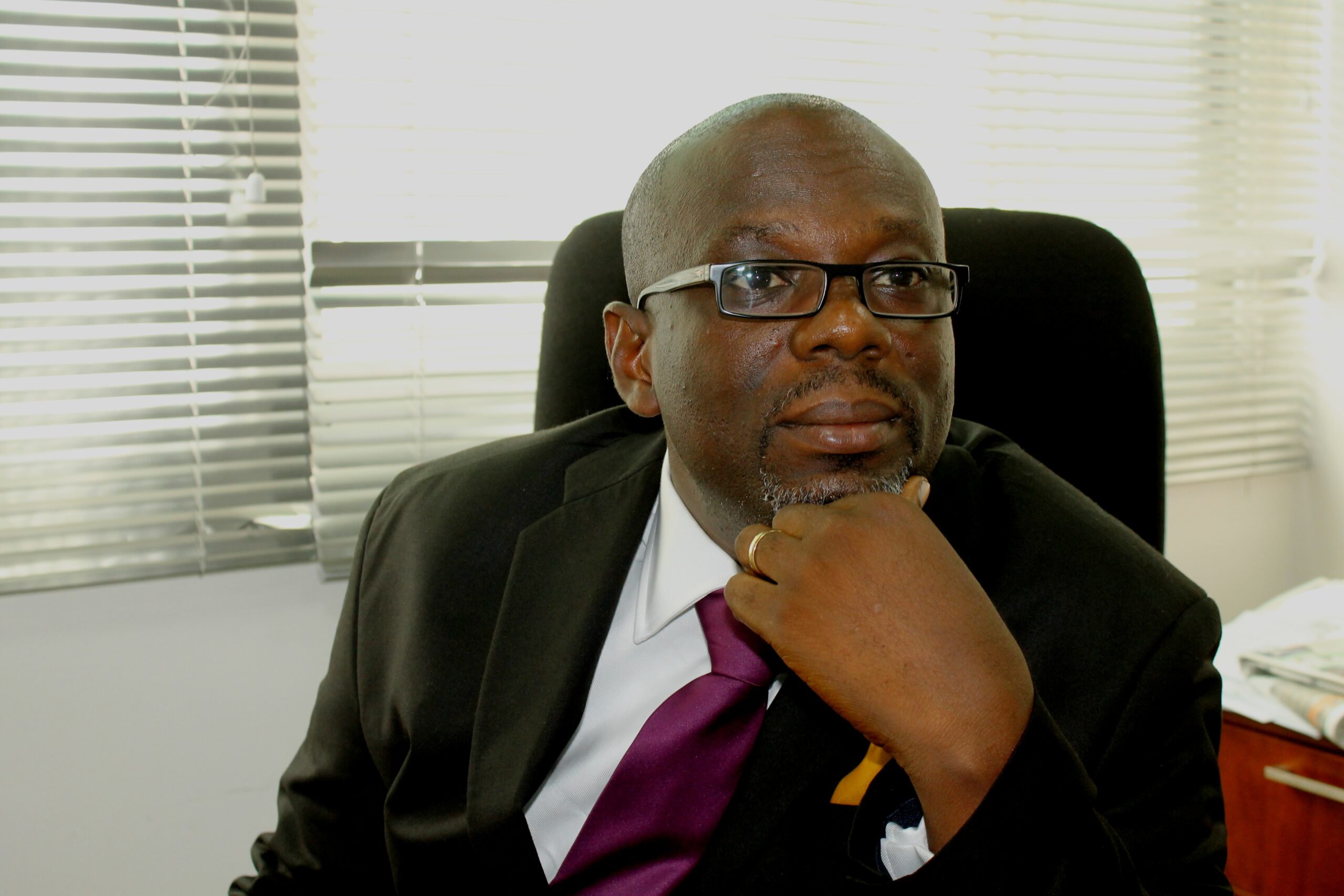There is a difference between technical legal knowledge and wisdom (Justice Senyo Dzamefe, 2014). Having observed the practice of law by lawyers in the courtroom, read judgments of judges, listened to discussions of some lawyers, both on legal issues and non-legal national issues, I cannot agree more with Justice Senyo Dzamefe and have come to the conclusion that the practice of law is really 20 per cent legal knowledge and 80 per cent common sense and wisdom.
There is a nexus between knowing the law, common sense and wisdom with the delivery of justice. Justice in law, at times, is not necessarily about the truth though it could be coincidentally arrived at. It is based on the pleadings, evidence and arguments made by lawyers through common sense and wisdom in both the substantive and procedural aspects of the law, based on which the courts will deliver judgments as justice according to the law but not necessarily the truth.
Understanding the facts of a case presented by a client, raising the legal issues to be addressed by the courts, understanding the related laws to be applied and making the arguments to convince a judge goes beyond legal knowledge. A client’s case is therefore as good as the common sense and wisdom of the lawyer.
Also, having laws in a country does not necessarily mean the citizens will enjoy freedom and justice. It has everything to do with common sense and the wisdom of political leadership. I believe a bad law in the hands of a wise, rational good leader is not likely to be used to harm the people, however, a good law in the hands of a thoughtless, irrational, unscrupulous bad leader can be used to oppress the people.
Again, state institutions, such as constitutional bodies and regulatory bodies set up by law are part of the administrative system of the State and their officers are to execute their legal mandate with decorum, common sense and wisdom as service to the people and their common development.
This article aims to bring to the fore that, knowing the law or having laws is a necessary but not sufficient condition for seeking justice, giving justice or delivering justice. Put differently, it takes more of common sense and wisdom to navigate the legal system for the common good of the people. The article looks at what it means to have common sense and wisdom, what law means and then draws the nexus between the application of common sense and wisdom to the law with respect to political leadership, litigation in the courtroom(s) and the execution of the legal mandate of state institutions.
COMMON SENSE AND WISDOM
According to the Merriam-Webster dictionary, sense implies a reliable ability to judge and decide with soundness, prudence, and intelligence and common sense suggests an average degree of such ability without sophistication or special knowledge, a good sense and sound judgement in practical matters. Also, wisdom implies sense and judgment far above average.
According to the Cambridge dictionary, common sense is the ability to use good judgment in making decisions and to live in a reasonable and safe way and wisdom is the ability to use your knowledge and experience to make good decisions and judgements.
According to the Reader’s Digest Oxford Wordfinder, common means ordinary qualities without special rank or position. Sense means practical judgment. Wisdom is experience and knowledge together with the power of applying them critically or practically.
With common sense, like integrity, you either have it or you don’t. There is no in-between. One cannot have “some” common sense. We see kids displaying a lot of common sense and wisdom for us to predict that they will be good lawyers. We hear of schoolmates who are lawyers and we immediately predict they will be good lawyers since we have known them in school as having displayed a lot of common sense and full of wisdom. We also hear of schoolmates who have become lawyers and we just say how? Well, he has passed the exams.
Passing through the law faculty and law school, `Makola` as we call it, without in-built natural human common sense is a waste of time and clients will suffer the brunt. I guess lawyers are called “learned” because we expect them to be full of common sense and wisdom making their level of reasoning above the average person.
People holding high office in the governance of a country, political or administrative, must also have common sense and exhibit wisdom to be able to make laws, interpret and apply good judgement for the good of the citizenry.
With an idea about what it means to have common sense and wisdom, that is ordinary qualities needed for practical judgement, which has nothing to do with any special knowledge, combined with the ability to use knowledge and experience intelligently, let us try to appreciate what the law is?
THE LAW
There exist various philosophical viewpoints on what law is.
John Austin, a positivist, defined law as “a rule laid down for their guidance of intelligent being by an intelligent being having power over him”. In his book “The Province of Jurisprudence Determined” he stipulates that, “The existence of law is one thing; its merit and demerits another. Whether it be or be not is another enquiry; whether it be or be not conformable to an assumed standard is a different enquiry”.
To Thomas Aquinas, a naturalist, law is “an ordinance of reason for the common good, promulgated by him who has care of the community”. Being an “ordinance” means it is a rule; being “of reason” it must satisfy a social objective and common good of the community not that of an individual; being “promulgated by him” connotes someone who has authority, political leadership, to make the rule.
According to Oliver Wendell Holmes, an American Realist, “prophecies of what the courts will do in fact, and nothing more pretentious is what the law is”.
About the role law plays in society, Carl Max describes law as “a tool or instrument used by the bourgeoisie (ruling capitalist class) to oppress the proletariat (masses or working class).”
All the above definitions of law from different philosophical viewpoints have embedded in them, the need for the application of common sense and wisdom. An “intelligent being” by John Austin, must no doubt be one with common sense and wisdom. Being “of reason” according to Thomas Aquinas, means it must satisfy a social objective and common good of the community not that of an individual, which requires common sense and wisdom. For Judges to make “prophecies” as stipulated by Holmes, it will of course take common sense and wisdom to consider public policy, social interest and their own experience. Even Karl Marx’s view of law points to the fact that law as it is, is devoid of the common sense and wisdom needed to evenly distribute wealth amongst a classless society. It therefore requires common sense and wisdom.
Basically, law “no get legs ebi human beings dey carry am” meaning the law has no legs it is human beings that carry it. It is common sense and wisdom that carries the law.
RELATIONSHIP BETWEEN COMMON SENSE, WISDOM AND THE LAW
The nexus between common sense, wisdom and the law will be made with respect to political leadership, that is the State and the law, the law and Court ligation as well as the law and the mandate of State institutions.
- Political Leadership
Laws are passed by political leadership. It can be passed for the common good of society and to advance the agenda and benefit of persons in political leadership. The law is law because it has passed through certain laid-down procedures to become the law but does not make it necessarily a good law. In terms of content, there can be good laws and bad laws depending on what the law is intended to be used for.
One law that has been deemed as bad by a section of society in Ghana, is the Preventive Detention Act (PDA), 1958, based on which Baffour Osei Akoto and 7 others were convicted (The Re Akoto & 7 others case). In as much as, hindsight, the PDA has been perceived as a bad law, having gone through the processes of making laws, the Supreme Court upheld its validity to be obeyed. The fact that the PDA did not meet certain moral or ethical demands of a section of the society did not matter. Interestingly, there is an annual Re Akoto Memorial Lecture to remind us of how bad the law or judgment was. If the law is what “it is” and not what “it ought” to be and the judgment was based on the law as it then was, then isn’t hypocritical to having such lectures? I guess not. It still makes sense to remind ourselves through such lectures that there are times when the law must be subjected to common sense and wisdom in both their enactment and its application as stipulated by John Austin, “The existence of law is one thing; its merit and demerits another…”. With common sense and wisdom, we need to question when the law is bad, oppressive, for it to be amended or repealed.
The criminal libel law was law but has been repealed. I guess it was because it lacked the common sense and wisdom needed to advance the course of humanity with respect to free speech. However, does the repeal of the law per se without common sense and wisdom of political leadership guarantee free speech? I doubt it.
The Constitution of a country can be irrelevant in the hands of a dictator, who can violate even the fundamental law of the land and still get away with it. On the other hand, it is possible for a thoughtful, good leader with common sense and wisdom to still lead a country without a constitution by doing things right based on conscience. The courts with common sense and wisdom are able to void certain laws or aspects of laws passed by the political leadership as not advancing the interest of society hence unconstitutional and bad laws. A recent case in point in Ghana is where the Court held that the Executive Instrument (E.I.63) which sought to provide the President with details of caller and called numbers, details relating to all outbound roaming data of subscribers of telecommunication service as well as the merchant code or the details of mobile money operators during the COVID-19 pandemic, was unconstitutional.
After the abolishing of slavery, the United States of America had a collection of laws called the Jim Crow laws which existed for about 100 years until 1968 that legalized racial segregation. In South Africa, apartheid laws, a system of institutionalised racial segregation were legal. These were valid laws that were passed by the political leadership but used to exploit a section of the people economically and politically dominate them.
The law therefore without the conscience of political leadership is meaningless. Carl Max in his definition of law, I believe had in mind the law in the hands of the thoughtless, irrational and suppressive bad leader, the dictator.
Once it cannot be guaranteed that all political leaders will have a conscience, laws are needed to check their behaviour and abuse of power. Quintessential of such checks and balances in our current democratic/constitutional dispensation is the 1992 Constitution of Ghana. Notwithstanding, a well-crafted Constitution will still not achieve its purpose if it is not applied with common sense and wisdom. As said law “no get legs ebi human beings dey carry am”.
- Court Litigation
In terms of litigation at the courts, judges are human beings with emotions so one can have a good case according to the position of the law on the issue(s) but lose the case because of a bad lawyer who lacked common sense and wisdom to navigate the courtroom process. Knowing the law is one thing but applying common sense and wisdom is another. If a lawyer in articulating knowledge of the law, does it with arrogance and disrespect to the judge, there is the possibility that the lawyer’s “sins” as a result of lack of common sense and wisdom, will be bestowed on the client. Lawyers know the Judge`s pen is final, so great lawyers apply common sense and wisdom in the courtroom. Of course, there is a right of appeal but at what cost to the client?
Cross-examination for example is the use of common sense and wisdom. A defence lawyer who substantively has no case on the merits may decide to discredit a witness as not reliable during cross-examination even though the witness may be testifying truthfully. The defence lawyer may also decide to use the shortfalls of a plaintiff’s lawyer, such as the plaintiff`s lawyer not following legal procedure to quash a case which if successful will be justice for the client even though the public and even the defence lawyer knows in law that the client may be guilty. This is common sense and wisdom and a typical case in mind is the O.J. Simpson case in the United States which in my opinion was won by common sense and wisdom on the part of his lawyers. O.J. Simpson himself must have been surprised he was acquitted.
Judges as adjudicators, apply common sense and wisdom in the interpretation of laws. They can set aside certain procedural improprieties by lawyers or distinguish facts of certain cases in order not to follow precedence to deliver justice. Even the Supreme Court uses common sense and wisdom to review their own cases or deviate from them. In a US case, Riggs V Palmer, a beneficiary of a Will killed the testator to expedite his claim to benefit under a validly executed Will. The court convicted him of murder and denied his claim under the Will as a beneficiary on the grounds that it would be absurd to allow a murderer to inherit from his victim or benefit from his own crime. A “prophecy” of common sense and wisdom by the court despite the position of the law that the testator is dead and the benefit must go to the beneficiary. In this instance, the law as written was overruled by “prophecies” of the court with common sense and wisdom.
A landmark case in Ghana in which common sense and wisdom won over legal knowledge was the 2012 Presidential Petition. Two lawyers had their clients before the Supreme Court Justices for contempt. One knew the limits of his legal knowledge before the highest court of the land with respect to their unfettered power of contempt. He used common sense and applied wisdom to create laughter in the courtroom, virtually begging the court to have mercy and was able to get the client pardoned with a caution to be of good behaviour. The other decided to go on a “showdown” with the Court on the law and the client was convicted. The Justices of the Supreme Court, in this case, also used common sense and wisdom to discharge their unfettered power of contempt by discharging the one who begged for mercy. For what shall it profit a lawyer who knows all the law but for lack of common sense and wisdom loses a case?
The law indeed resides in the bosom of the judge. What they “prophecy” to be the law according to Oliver Holmes is what the law is. A well-known quote is that “A good lawyer knows the law; a great lawyer knows the judge”. Knowing the judge is not about having a personal relationship with the judge but knowing the temperament, personality, idiosyncrasies and even particular mood of the judge in the courtroom to take a cue. This has nothing to do with the knowledge of the law but common sense and wisdom.
In fact, with common sense and wisdom without knowledge of the law, being learned as a lawyer, it is possible to defend oneself in court and still have justice. With common sense and wisdom, it is also possible for the non-legal mind to read a court judgment and know it does not make sense relative to the law though it has been adjudged by the majority of the panel of Judges. Thus said, it is possible to read a dissenting view of a judgment and one will marvel at the common sense and wisdom of the legal reasoning used to arrive at the decision.
MANDATE OF STATE INSTITUTIONS
There are State institutions and administrative bodies that the State has mandated by laws establishing them to assist political leadership in governing a country. Under Article 23 of the 1992 Constitution, such bodies and their officials are to act fairly and reasonably. Also under Article 296, such bodies in exercising discretionary power must be fair and candid, not biased, arbitrary and capricious in their decision-making whilst following due process of the law. Such bodies are Constitutional bodies such as the Electoral Commission, the Central Bank (Bank of Ghana) and other regulatory bodies such as the Securities & Exchange Commission (SEC), National Petroleum Authority and the National Communication Authority (NCA). These bodies have been set up by various Acts of Parliament.
Articles 23 and 296 of the 1992 Constitution, basically admonish the officials of these State institutions to use common sense and wisdom in the application of the laws establishing them and execution of their mandate. Most invariably, what is heard from these bodies are: “the law mandates us to…”, “we are not acting outside the law..”, “we are backed by law..”, “ we are working within our mandate”, or “we have the power to…”
Yes, you have the power of the law to do what you doing but where is the “intelligent being”? where is the “reason for the common good”? as defined by Austin and Aquinas within the same law that is giving you the power? Where is the common sense and wisdom that the fundamental law of the land requires you to be fair, reasonable, not biased, arbitrary and capricious in the exercise of your discretionary powers? Remember law “no get legs ebi human beings dey carry am”.
The mandate of all administrative bodies is for public good. The law has been made by the people through their representatives in Parliament for the good of the society. In executing the mandate, it takes common sense and wisdom to want to engage the people who will be impacted by the outcome. Even more important is to get the views of all parties or stakeholders at the beginning of the process, agree on what has to be done and then strategize democratically. Once that is done, backed by the law, the implementation process as agreed is executed for society to move from the undesired current state we all do not want to the future desired state we all seek.
Most invariably what these state institutions do is, strategize autocratically using the law and when it comes to implementation, they then want to seek the support of the stakeholders to implement democratically what they have already decided. That is not common sense and wisdom. The point here is that the law is just a tool, a standard of behaviour. However, above it, is the intelligent person, making the law, using the tool or applying the standard within a humane environment with common sense and wisdom.
The end goal of law is to advance human development and social cohesion. Granville Williams in his book Learning the Law, said that law “is the cement of society, and an essential medium of change”. This requires that in executing their mandate which is backed by law, administrative bodies need to employ human-centred change management methodologies to bring society together and this requires common sense and wisdom. Again law “no get legs ebi human beings dey carry am”.
CONCLUSION
Without the law, human society will be living in the animal kingdom of `survival of the fittest`, so we need the law. However, with the law, there is still no guarantee that human beings will have a peaceful co-existence if the human beings who made the laws and for whom the laws have been made do not exhibit in application of the law, what separates humans from animals, common sense and wisdom. Society will still be a jungle.
Common sense and wisdom have nothing to do with literacy (reading and writing English) or formal education. People occupying high-level decision-making positions in the governance of the State, who do not have common sense and exhibit wisdom in their work first as human beings, from the lenses of the common person but hide their inefficiency and incompetence behind the law to oppress the people, should not be allowed to be in those positions.
Finally, in resolving disputes, the law really kicks in when common sense and wisdom fail. Disputants really do not need the law if they are able to with common sense and wisdom, consultatively resolve their issues through negotiation, self-mediation, and customary or professional mediation which are more appropriate forms of dispute resolution if relationships and society are to be preserved.
Indeed, common sense and wisdom makes a great difference to having technical legal knowledge in the making and application of the laws necessary to advance a free and democratic society.
The author holds an LLB, LLM and an Executive Masters in Appropriate Dispute Resolution (ADR). (visit : Kofianokye.blogspot.com; Kofidarko2.blogspot.com) contact: kofianokye18@gmail.com)
















